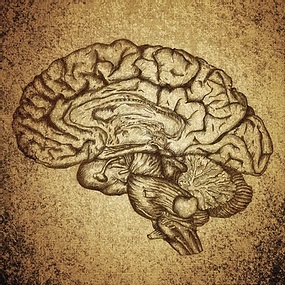We’re not medical professionals and we don’t pretend to be. All information, content, and material of this website/blog is for informational purposes only and is not intended to serve as a substitute for the consultation, diagnosis, and/or medical treatment of a qualified physician or healthcare provider.
These are some of Helayne’s key takeaways from this amazing series featuring Dr. Perlmutter, Dr. Bredesen and other scientists. Originally shared July of 2019, we recommend you sign up for the “docuseries” and take in all the details for yourself!
DAY 4: July 20th, How to Change Your Brain For the Better
Take Control of Your Genetic Destiny
Learn how to harness some of the most exciting discoveries in neuroscience when we show you how you can:
- Change your genetic destiny
- Rewire your brain’s connections
- Help your brain grow new neurons

Helayne listened to Day 4 of the World Premiere of Alzheimer’s – The Science of Prevention series and here are a few of her key take-aways.
The fourth installment of this series delves into the genetics behind the risk of developing Alzheimer’s Disease. We encourage you to check out the full series for a more in depth look but here are some of the highlights.
The point of today’s series was to demonstrate that have certain gene markers is not determinative as to your health outcomes. More importantly, it is HOW our genes express themselves, which is through a process called, Epigenetics. Therefore, the power to change how your genes express can have a dramatic impact on our daily lives. Here are some terms you should know:
- Neuroplasticity- growing and creating new connections between neurons
- Neurogenesis- growing new brain cells)
- Epigenetics- influencing our genetic expression
Epigenetics is a big one to know. Since our genes are the building blocks of our lives, the potential to change the ways they express can have a huge impact in our lives Epigenetics involves how lifestyle, environment, and experience can be linked to how genes express. This is good news for those who have the APO-E 4 gene, aka- the “Alzheimer’s Gene”. This means that the risk of having this gene is not the main determinant for an individual developing Alzheimer’s! Lifestyle can offset the risk the gene presents.
In the 1990’s, scientists discovered that our brain cells are continually growing and regenerating. Back in the 1960’s, scientists incorrectly theorized that brain cells die with every year that passes, and do not regenerate. The modern science has proven this is not at all the case. We now know that if a brain is damaged, you can repair and grow new brain cells through neurogenesis and neuroplasticity AT ALL POINTS THROUGH YOUR LIFE, AND WELL INTO YOUR 80’s, 90’s and beyond.
A healthy lifestyle can help the brain’s resistance to deterioration.
Through lifestyle changes, various molecules in our body are stimulated by dietary interventions. Examples of this can be seen through the ketogenic diet and plant-based nutraceuticals, as they are called, that can influence gene expression. This has opened up whole new areas of research in and of themselves. It’s also been shown that prolonged exercise and fasting can elevate molecules such as beta hydroxy buterate (spelling?)- a ketone body. The ketone body is a profound epigenetic regulator that can mirror the effects of some cancer treating drugs.
Other lifestyle changes can help generate the growth of new neurons through the use of stimulators. A key example of this is music therapy which can even have impact in late stages of Alzheimer’s. We encourage you to check out our fund-raising effort called My Heart Sings (https://www.apracticewithpurpose.com/myheartsings) to learn more about how you can help bring music therapy to more people in Brunswick and New Hanover Counties. Another way to help stimulate neurogenesis and neuroplasticity is through exercising the brain through learning new things and playing games designed for that very purpose.
Healthy Lifestyle Changes to Make TODAY!
- Eat a diet that helps reduce inflammation
- Fast on occasion (please consult medical professional before trying)
- Exercising Body and Brain with stimulating activities
- Manage blood sugar
- Get 7-8 hours of good quality sleep each night
- Reduce stress
- Nurture microbiome (your gut)
- Reduce Toxins
Dr. Perlmutter wanted his listeners to know that if it all sounds too overwhelming, making one key change helps so good luck in exploring and fulfilling the power within you to determine your destiny!





















0 comments